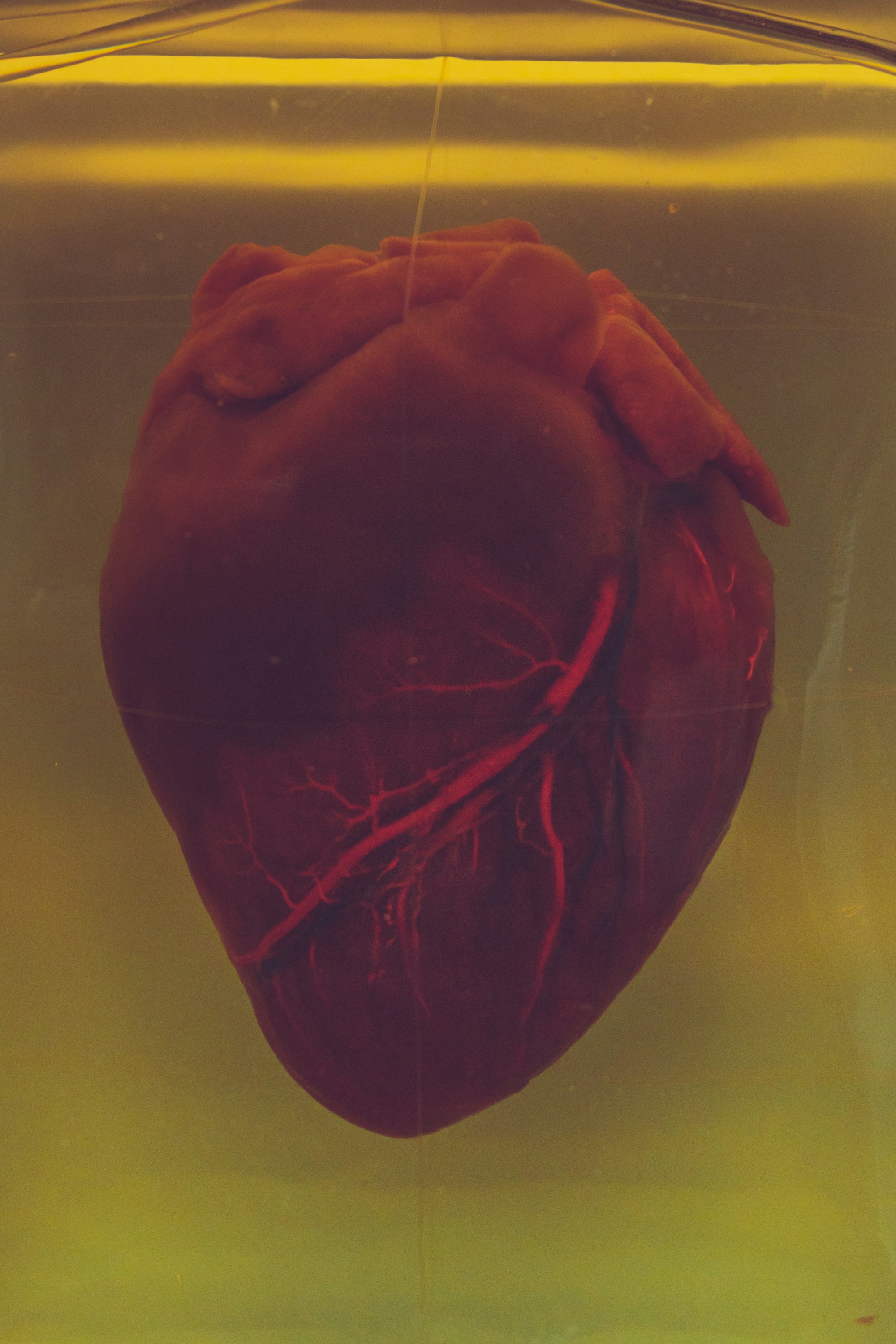Can a Deviated Septum Cause Sleep Apnea?
Discover how a deviated septum can impact your breathing and sleep quality, potentially contributing to obstructive sleep apnea. Learn about symptoms, diagnosis, treatment options like septoplasty, and ways to improve nasal airflow for better sleep and overall health.

Introduction: Defining Sleep Apnea and Deviated Septum
Sleep apnea is a disorder that affects millions of people around the world. It is characterized by brief pauses in breathing during sleep, disrupted sleep patterns, and excessive daytime sleepiness. While it can be debilitating, treatment options are available to help improve your quality of life.
Deviated septum is another common medical condition that can contribute to sleep apnea. A deviated septum occurs when the nasal septum, or wall between the two nostrils, is shifted out of its normal position. This can obstruct airflow from one side of the nose to the other, making it harder to breathe.
In this guide, we will discuss how a deviated septum can lead to sleep apnea. We will also explore what the signs and symptoms of a deviated septum are, as well as diagnosis and treatment options available. Finally, we'll cover what should be considered for children with a deviated septum and sleep apnea.
What Causes a Deviated Septum?
A deviated septum is a condition in which the nasal septum (the bony and cartilaginous wall between the nostrils) is displaced or crooked. The displacement of the nasal septum can be caused by birth defects, accidents, injuries, and illnesses.
The most common cause of a deviated septum is trauma to the nose, usually sustained during sports, car accidents, or fights. Injuries such as these can cause pain and swelling of the septum, which can lead to displacement. It's also possible for the septum to be displaced gradually over time as the result of repetitive pressure or long-term inflammation from nasal allergies or infections.
Birth defects are another cause of a deviated septum. Some people are born with a crooked septum due to abnormalities in the development of the nose in the womb. Rarely, nasal concha hypertrophy, which is an enlargement of the spongy bones in the walls of the nose, may cause the septum to become crooked.
Infections that cause inflammation and swelling of the septum may also lead to a deviated septum. Infections that affect the nose, such as sinusitis and rhinitis, can cause the septum to become crooked as it tries to expand to make more room for the infected area.
Signs and Symptoms of a Deviated Septum
A deviated septum is an abnormality in the nasal cavity that occurs when the thin wall between the two nostrils, known as the septum, shifts or tilts out of place. This can lead to a range of signs and symptoms that range from mild to severe.
- Nosebleeds: This is one of the most common symptoms of a deviated septum. In many cases, nosebleeds are more frequent on one side due to the constricted airflow.
- Nasal congestion: Nasal congestion can be due to a variety of factors including allergies, infections, and a deviated septum. A deviated septum can cause one side of the nose to be more congested than the other.
- Facial pain: A deviated septum can cause facial pain due to the misalignment of the nasal cavity. This may be felt as pressure, pain, or headaches in the forehead, cheeks, or side of the face.
- Sinus infections: Sinus infections are more common when the airflow through the nose is restricted, as with a deviated septum.
- Difficulty breathing: The misalignment of the nasal cavity can cause obstruction of the airways, leading to difficulty breathing. This can result in snoring or breathing pauses while sleeping.
Not everyone with a deviated septum will experience these symptoms. It is important to note that many people can have a deviated septum and not be aware of it. If you are experiencing any of these symptoms, then it is important to talk to your doctor.
How Does a Deviated Septum Cause Obstructive Sleep Apnea?
The nose plays a key role in our breathing, helping filter and warm the air we breath in. It also helps direct the air evenly to each side of the lungs. When the nasal septum, the wall of bone and cartilage that separates the two nostrils, is misaligned or deviated, it can significantly reduce the airflow into the lungs. The lack of airflow can cause a number of health problems, including obstructive sleep apnea.
Obstructive sleep apnea occurs when the airway becomes blocked during sleep, preventing air from traveling to the lungs. This can happen when the soft tissues at the back of the throat collapse during sleep, making it difficult to breathe. A deviated septum can also contribute to this blockage, as the narrowed airways can restrict airflow and cause snoring or labored breathing.
The exact mechanism by which a deviated septum contributes to sleep apnea is still being studied, but researchers have identified several possible causes. For example, a deviated septum can cause an obstruction in the nasal passages, which can then lead to sleep apnea. The narrowing of the nasal passage can also reduce the amount of air entering the lungs, thus reducing oxygen levels in the blood. This can lead to poor quality sleep, which has a number of adverse health effects. Additionally, the narrowing of the nasal passages can affect the body’s ability to regulate temperature, leading to further disruption in sleep.
Another theory suggests that a deviated septum can interfere with the normal functioning of the upper airways, making them more susceptible to collapse when one sleeps. The interference can also cause chronic inflammation of the airways and mucosal tissues, which can contribute to the development of sleep apnea.
Overall, research has found that a deviated septum can significantly contribute to obstructive sleep apnea. However, more research is needed to understand the full range of ways in which a deviated septum can contribute to the condition. In the meantime, if you are experiencing any of the symptoms associated with sleep apnea, it is important to speak to your doctor for proper diagnosis and treatment.
Diagnosis and Treatment of a Deviated Septum
When searching for the answer to “Can a deviated septum cause sleep apnea?” it is important to know how a deviated septum is diagnosed and treated. A deviated septum can be easily diagnosed through a physical examination by an experienced healthcare professional. If the healthcare professional suspects a deviated septum, they may order a CT scan or MRI to review the internal structure of the nose.
A deviated septum can be corrected through a septoplasty, which is a surgical procedure where the deviated portion of the septum is realigned. A septoplasty is typically done as an outpatient procedure under general anesthesia. During the surgery, the doctor will reposition, remove, and reconstruct the deviated portions of the septum. Recovery time for the surgery varies but usually takes about a week.
In some cases, a septoplasty might not be enough to correct the deviated septum and relieve the symptoms of sleep apnea. In these cases, additional surgeries such as turbinate reduction or a uvulopalatopharyngoplasty may need to be done. Both of these can be done in combination with a septoplasty or on their own, depending on the patient's situation.
The success rate of these corrective procedures depends on the severity of the deviated septum and other factors. Some patients experience full symptom relief, while others may only have partial relief of their sleep apnea symptoms.
It is important to consult your doctor when considering any type of surgery for sleep apnea. They can help you determine if the procedure is right for you and discuss any potential risks and benefits involved.
What Treatment is Recommended for Sleep Apnea Caused by a Deviated Septum?
When a deviated septum is causing sleep apnea, the treatment may vary depending on the individual’s situation and severity. In most cases, surgery is recommended in order to correct the deviated septum and improve breathing during sleep. This surgery is called septoplasty and involves realigning the septum so that air can move freely through the nasal passageways. Other treatments, such as lifestyle changes or use of a CPAP machine, may be employed in certain scenarios.
Before any treatment is prescribed, a sleep study must be conducted to diagnose sleep apnea and determine the severity of the condition. If a deviated septum is the cause of sleep apnea, the doctor may suggest septoplasty followed by a second sleep study to assess the results of the surgery.
Septoplasty surgery involves straightening the cartilage and bone inside the nose so that the airways no longer become blocked. It is a relatively quick and simple procedure that requires minimal recovery time; however, the patient needs to have realistic expectations about the results as it may not completely eliminate sleep apnea symptoms.
Some lifestyle modifications may also be recommended for those with a deviated septum and sleep apnea. Removing alcohol from the diet, kicking the smoking habit, and maintaining a healthy body weight can all improve the quality of sleep. Additionally, nasal strips and decongestants may be suggested to help reduce inflammation and improve airflow.
If lifestyle modifications and septoplasty are not enough to treat sleep apnea, a CPAP (continuous positive airway pressure) machine may be used. The CPAP helps to push air into the airways while the patient is sleeping, keeping the airways open and allowing them to breathe without obstruction.
It is important to remember that treatment for sleep apnea caused by a deviated septum should be customized to each individual’s situation. The best option will depend on the severity of the condition as well as the underlying cause. It is always best to consult with a sleep specialist or ENT (ear, nose, and throat) doctor to discuss the best treatment plan.
The most common treatment for sleep apnea caused by a deviated septum is a procedure called septoplasty. This corrective surgery involves reshaping the inside of the nose to remove any blockages in the breathing passages. After the blockages are removed, the airway is widened and this can greatly improve airflow.
In some cases, a person with a deviated septum may need to treat the underlying cause of their sleep apnea, such as allergies and chronic sinus infections. Treating these underlying causes can further improve breathing during sleep.
In addition to septoplasty, a person with a deviated septum and sleep apnea can benefit from other treatments. For example, lifestyle changes such as avoiding alcohol and sleeping on the side can help reduce symptoms. Another option is the use of oral or nasal devices such as continuous positive airway pressure (CPAP) machines to help keep the airways open while sleeping. CPAP machines can provide relief for those who suffer from moderate to severe sleep apnea.
If lifestyle changes and other treatments do not adequately improve the symptoms of sleep apnea caused by a deviated septum, then a doctor may recommend different types of surgery. Surgery to correct the deviated septum combined with other procedures such as uvulopalatopharyngoplasty (UPPP) can also help to open up the airways and reduce snoring and other symptoms of sleep apnea.
Overall, the prognosis for treating sleep apnea caused by a deviated septum is generally good. With the right approach, sleep apnea can be successfully managed and the person’s quality of life can improve. It is important to discuss all treatment options with your doctor to find the best approach for managing your sleep apnea.
Take-Away Points Summarizing Can a Deviated Septum Cause Sleep Apnea?
Sleep apnea is a serious sleep disorder that can cause daytime fatigue, poor concentration, and other health complications. Deviated septum is one of the potential causes of obstructive sleep apnea.
Having a deviated septum can narrow the airway passage and obstruct breathing during sleep. People with deviated septums are more likely to have sleep apnea than people with normal septums.
If you think you might have a deviated septum and are experiencing symptoms of sleep apnea, such as snoring, it's important to get a proper diagnosis from your doctor. The doctor may refer you to an ear-nose-throat specialist for further examination.
Treatment of a deviated septum can depend on several factors. In some cases, it requires surgery to repair the septum. For people with milder cases, treatments like nose modifications or lifestyle changes may help alleviate symptoms of sleep apnea.
Prognosis for treating sleep apnea caused by a deviated septum is generally good and long-term outcomes usually depend on the severity of the case. However, it may take some time before any improvements are noticed.
Frequently Asked Questions About a Deviated Septum and Sleep Apnea
A deviated septum can cause obstructive sleep apnea, but it is not always the only cause. To better understand if a deviated septum could be the cause of your sleep apnea, some of the most common questions about the topic are answered below.
What is a deviated septum? A deviated septum is when the thin wall that separates the two nasal passages is crooked. This can vary from mild to severe, and can cause breathing problems that range from mild to severe.
What are the symptoms of sleep apnea? Common symptoms of sleep apnea include snoring, daytime fatigue, and episodes of stopped breathing during sleep.
Can a deviated septum cause sleep apnea? Yes, a deviated septum can lead to obstructive sleep apnea. When the septum is deviated, it can block the airways, making it difficult to breathe while sleeping.
How is a deviated septum diagnosed? A doctor can often diagnose a deviated septum by looking into the nostrils with an otoscope. Additional tests may be needed to confirm the diagnosis.
How is a deviated septum treated? Depending on the severity of the deviation, treatment may include medications, lifestyle changes, or surgery.
What is the prognosis for treating sleep apnea caused by a deviated septum? If the septum is treated, the symptoms of sleep apnea should improve. However, it is important to remember that other factors, such as obesity, can also contribute to sleep apnea and these should be addressed
What is septoplasty surgery?
Septoplasty is a surgical procedure to straighten a deviated nasal septum. This improves nasal airflow and can alleviate symptoms like chronic nasal congestion, sinus infections, and breathing difficulties.
Can treating a deviated septum resolve sleep apnea?
For some sleep apnea patients, treating a deviated septum can significantly improve breathing and sleep quality. However, additional treatments, such as a CPAP machine or lifestyle changes, may be necessary for severe cases of obstructive sleep apnea.
How is a deviated septum diagnosed?
A deviated septum is diagnosed through a physical exam, often using a nasal speculum to inspect the nasal passages. Imaging tests or a review of symptoms like chronic nasal congestion and frequent sinus infections may also be used.
Can a deviated septum be self-tested?
While not definitive, you can perform a self-test by closing one nostril and attempting to breathe through the other. Difficulty breathing through one side consistently may indicate a deviated septum. Consult a healthcare provider for a proper diagnosis.
Can a deviated septum cause other health issues besides sleep apnea?
Yes, a deviated septum can lead to frequent sinus infections, chronic nasal congestion, nasal obstruction, noisy breathing, and even high blood pressure due to poor sleep quality.
What should I do if I suspect a deviated septum is causing sleep issues?
Consult a specialist in clinical sleep medicine or an ear, nose, and throat (ENT) doctor. They can evaluate your nasal structure, recommend a personalized treatment plan, and determine if septum surgery or other interventions are necessary.
What are the benefits of treating a deviated septum?
Correcting a deviated septum can improve nasal airflow, reduce symptoms like nasal congestion and sinus infections, and enhance sleep quality, helping you achieve a full night's rest and breathe easier
Is nasal surgery painful?
Nasal surgery like septoplasty is usually performed as an outpatient procedure under anesthesia. Most patients report mild discomfort, and recovery typically takes a few weeks.
Can other factors cause sleep apnea besides a deviated septum?
Yes, other causes include obesity, relaxation of throat muscles, neck structure, and central sleep apnea, where the brain doesn’t send proper signals to control breathing.For better sleep and breathing, it’s essential to address any sleep disorder or structural issues like a deviated nasal septum with the appropriate treatment options.
- Non-surgical options: Nasal steroid sprays, nasal strips, and humidifiers can help reduce nasal symptoms and improve airflow temporarily.
- Surgical options: Septoplasty surgery, a common outpatient procedure, can correct the septal deviation and improve nasal airflow, potentially reducing sleep apnea symptoms.
Conclusion
A deviated septum is a common condition that can obstruct airflow and cause a variety of issues, including sleep apnea. Diagnosis and treatments for a deviated septum can be different depending on the individual, but it is important to see a doctor to determine the best course of action.
If a deviated septum is causing sleep apnea, treatments such as surgery, lifestyle changes, and/or CPAP therapy may help reduce symptoms. It is important to talk to a doctor to decide on the best treatment plan for you.
Living with a deviated septum and sleep apnea can be difficult, but by understanding the causes, treatments, and prognosis, you can take steps to improve the quality of your sleep and overall health.
More articles you may want to read...













